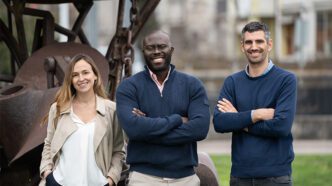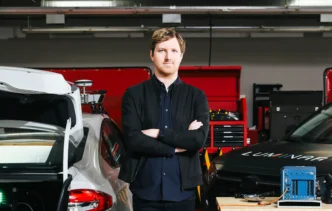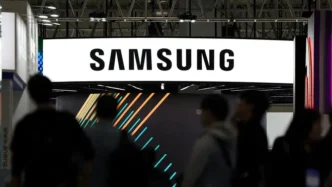Across Sub-Saharan Africa, maternal and newborn deaths remain tragically high—despite the existence of affordable, proven medical solutions. Each year, over 287,000 women die from complications related to pregnancy and childbirth. Even more heartbreaking, 2.3 million newborns lose their lives within their first month. Most of these deaths are preventable. But outdated procurement systems, tight public health budgets, and weak supply chains continue to block access to essential medicines.
Now, Swiss healthtech startup Axmed is stepping up with a bold, tech-powered approach—and it’s getting a major boost. The Bill & Melinda Gates Foundation has awarded a $5 million grant to the company, aiming to catalyze $10 million in new maternal, newborn, and child health (MNCH) medicine procurement across Africa. The announcement, made during the 78th World Health Assembly in Geneva, reflects a growing urgency to modernize how vital medicines reach those who need them most.
This isn’t just another donation—it’s a dollar-for-dollar matching fund. That means Ministries of Health can double their procurement budgets in real time, accessing quality-assured medications without the delays that often come with donor bureaucracy. The grant also unlocks the benefits of pooled procurement: countries can combine their medicine orders, boosting their bargaining power, securing better prices, and speeding up deliveries. According to UNICEF’s 2024 report, this model can reduce drug costs by up to 30% and cut delivery times significantly.
This move fits squarely into the Gates Foundation’s broader mission: reducing maternal and child deaths by improving national health systems. The foundation has long supported smarter procurement, backing global platforms that have saved billions in medicine costs over the past decade.
A Founder’s Vision Built from Firsthand Experience
Axmed was founded by Emmanuel Akpakwu, Sofia Radley-Searle, and Felix Ohnmacht—a team that blends pharmaceutical, tech, and public health experience. Akpakwu previously served as Chief Commercial Officer for Novartis in Sub-Saharan Africa, where he saw firsthand how fragmented systems and low volumes discouraged global suppliers from serving these markets. That frustration led to the creation of Axmed.
Their goal? Not just cheaper medicines, but a smarter, more transparent system that ensures reliable access. Their digital platform does just that—connecting government agencies, UN bodies, and NGOs directly with vetted pharmaceutical manufacturers. By aggregating demand, Axmed gives suppliers more predictability and cuts out inefficiencies that slow down traditional procurement.
The impact is already visible. In 2024 alone, users of the platform reported savings between 20% to 30%—with some MNCH medicine categories seeing discounts of up to 80%.
But it doesn’t stop at price. Axmed uses AI-powered demand forecasting to help governments better plan, avoid waste, and keep essential drugs in stock. They also partner with modern logistics players like Zipline, using drones to deliver medicines to remote rural areas with full traceability.
As of early 2025, the platform has already facilitated over $15 million in medicine procurement, directly benefiting more than 2 million mothers and children across six African nations. And the company is in advanced talks with more governments and donors to scale that number even higher.
Why Axmed Stands Out in a Crowded Field
In a sector notorious for red tape and slow delivery, Axmed’s biggest strength is integration. They combine technology, finance, and logistics—offering a rare full-stack solution for governments that often juggle outdated tools and strained capacity.
Their 1:1 matching fund model is especially innovative. It unlocks liquidity—a major barrier for health ministries—while also nudging long-term reforms. It’s a hybrid approach: short-term relief with a long-term vision for sustainable health financing.
And that vision is big. With this new funding, Axmed plans to extend its platform beyond MNCH medicines to include vaccines, non-communicable disease treatments, and more. Southeast Asia and Latin America are next on the roadmap.
With robust quality controls—ensuring all drugs meet WHO prequalification standards—Axmed is proving that you don’t have to sacrifice quality to make medicines affordable and accessible.
Cynthia Mwase, Director of Health, Africa, at the Gates Foundation, emphasized the urgency: “Reducing preventable maternal and child deaths is core to our work. This partnership with Axmed helps ensure life-saving interventions reach the communities that need them most.”
Dr. Loko Abraham, CEO of Rwanda Medical Supply, agreed, saying the collaboration is already improving the delivery of high-quality medicines. With the new grant, that impact will only deepen.
For Akpakwu, this is just the beginning. “We’re not just here to cut costs—we’re building resilient systems that will shape the future of health procurement in low-income countries,” he said.
In a world where millions still die from preventable causes, Axmed offers a fresh blueprint: smarter, faster, and more human-centered.













